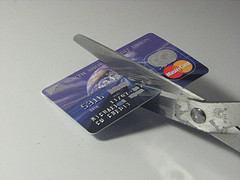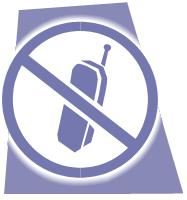Debt Consolidation 
vs.
DebtSettlement
It is very important to know exactly how much money you have coming in and how much is going out each month before you decide if a Debt Consolidation or Debt Settlement Program is best for you. A basic home budget does not have to be complicated. You just need to know:
- How much money (from all sources) do you have after all deductions?
- How much money do you spend each month? Things like the mortgage or rent, utilities, groceries, auto payments, insurance, etc. Be sure to write down everything.
When you know exactly how much money you have (or how little) after paying all of your bills, then we help you decide which program would be best for you.
Now that you know where you stand financially, does it really make sense to continue making just the minimum payments required by each of your creditors?
The Credit Card Industry does not want, nor expect you to ever fully repay your accounts! Billions of dollars of interest and fees are earned from the millions who only pay the minimum payment each month. It is estimated that in takes the average consumer 15-20 years to repay a single account at a cost of 3-4 times the total amount charged! There must be a better solution, and there is.
Debt Consolidation
In order to determine if you qualify for a Debt Consolidation Program (DCP), you will need some basic information about the debts that you owe. (name of creditors, current balances, minimum payments, etc.)
Once that information is gathered, a reputable Debt Consolidation Company can tell you what your monthly payment will be and how long it will take to get the debt paid off. In a DCP:
- You will have one monthly payment
- Lower your average APR
- Pay off your accounts in 3-5 years
- Stop creditor calls
- Maintain or even Improve your credit score! (Although your credit score may decline slightly while you are in the program, once you have completed the program, your scores should improve. For more information, visit www.myfico.com )
But what if you cannot afford the minimum payment required by a DCP?
Debt Settlement
Debt Settlement is a program designed for those who:
- Are facing severe financial hardship due to circumstances beyond their control (loss or lower income due to unemployment, lay-offs, divorce, disability, insufficient retirement income, etc.)
- Have considered a Debt Consolidation Program (above), but simply cannot qualify or afford the monthly payment required.
- Do not want to file for bankruptcy.
If you have fallen behind in making your minimum payments (or are about to), Debt Settlement might be the best choice for you. Through this program, each month you will deposit an amount you can afford (based on your budget) into savings-settlement account.
As your savings-settlement account grows, offers are being made by the Debt Settlement Company for a settlement of your debts. Although the final settlement amount cannot be guaranteed, it is usually much less than the balance.
Most creditors will accept a settlement, but there are some cases where a creditor may attempt to seek legal action in order to collect the full balance. However, successful settlements can still be made in spite of a judgment. Most creditors would rather accept a settlement offer than force you to consider bankruptcy.
As you can see, there are options available to help you eliminate your debt. Both the Debt Consolidation and Debt Settlement programs work for different financial situations, but the end result is the same. Eliminate your debt in a short period of time and save money in the proccess!
Click HERE to get your FREE Personal Debt Elimination Summary!
Photo by: SMJJP




 Credit Card Debt Negotiation
Credit Card Debt Negotiation






